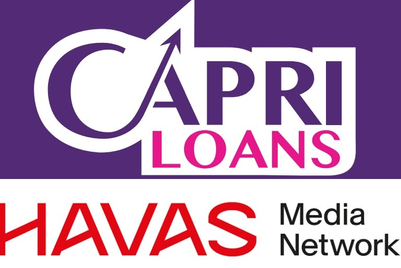With a new structure and strategy in place, the Havas Group, is all set for a new future. A big part of the new strategy is going to involve regions like Indonesia, the Phillippines, Vietnam and Thailand, said Alfonso Rodés, the CEO of Havas Media.
But what happens if Havas becomes the target of a takeover? Rodés who recently made a pit stop in Singapore lets in on this in his Q&A with Campaign Asia-Pacific.
As far as business and billings go, how does Asia compare to the rest of the world?
It’s very curious. In some sectors you can see Asia is a bit behind the United States of America and the United Kingdom. But in the mobile market, Asia is far ahead than the rest. In social media, Asia is compares shoulder-to-shoulder to the States and the UK. It’s true different parts of the world have different speeds, but the level of competitiveness is very similar all around the world. When it comes to traditional media, something’s here are perhaps 5-10 years behind Europe. But I wouldn’t pay attention to that.
Over the next five years, where is the growth going to come from in Asia?
In terms of countries, we’re focused on China and India. But we’re also investing in Indonesia, Phillippines and Vietnam and perhaps Thailand. We think growth there will help us. In terms of the disciplines, everything has to do with digital. We’ll see mobile playing a special role, that’s why we invested in Filipino agency Snapworx mobile (now Mobext). For the second year in a row we have been appointed best mobile agency in the United States.
You’re eyeing mobile marketing dominance in the region. How are you going about it?
We’re using our knowledge with Snapworx to expand around the region with Mobext. We’re the only Global network that is developing a specialized network in mobile. We strongly believe that today it is important to have specialists. Internally we need to have strong expertise in different disciplines. So that means traditional media, social media, search, mobile, sports marketing, entertainment and so on. The key factor is to co-ordinate different disciplines so the client can see an integrated effort.
What are the challenges you are having to contend with?
There are always challenges is to gain the trust of the client. We always try to be positive. We position ourselves in a different way from our competitors. We tell them we’re not Americans, we’re multi-cultural. This also helps us understand differences within regions. We really try to understand local peculiarities. Havas has more local leaders in every country than any other competitior. Language is an important vehicle to woo local people and the only way to do that is to be local. So we started to look for good local managers.
How has that benefitted your business?
We are French-Spanish origin company, most American agencies travel with a marvelous portfolio of clients. Because we don’t have that we have to find opportunities with local clients. How do you do that? By gaining their trust by hiring local people. The consequence of all that, all around the world, in most countries has translated into 75 per cent of our income now comes from local clients. For us, that’s a big differentiator.
The industry is in a phase of consolidation evident from the Dentsu-Aegis deal? Would you agree?
For the Aegis operation I personally admire two people. One is my President Vincent Bollore (who had a 26.4 per cent stake in Aegis) for running a fantastic operation. Then is the CEO of Aegis, someone who has brought value to shareholders. Consolidation could continue but I don’t see it moving so quickly. Let me explain that to you. We’ve been doing a study called Meaningful Brands in the last five years. We’ve seen, in Western countries brands are becoming less and less important to consumers. 75 per cent of brands no one cares of. People only care about brands that bring meaning to them. If that happens to Global brands, it means local niche brands have an opportunity. If that becomes true, you don’t need to be part of a big agency.
Havas is the only independent agency left and that could put you at the center of a takeover.
It’s a logical thought. I will say that, it could happen. If you ask me if it will happen? I’ll say no. Today together with asset management companies and the Bollero group own more than 60 per cent of the group. Can someone come with a cheque that is much larger than the stable? We’ll think about it. But it doesn’t make sense today. We just restructured our brands to make it simple. There’s a lot of cross-selling and collaboration going on and we have a very nice future. But if some big guy become crazy and brings us a cheque who knows. But it’s not something we’re looking for.




.jpg&h=334&w=500&q=100&v=20250320&c=1)
.jpg&h=334&w=500&q=100&v=20250320&c=1)
.jpg&h=334&w=500&q=100&v=20250320&c=1)




.jpg&h=334&w=500&q=100&v=20250320&c=1)


.jpg&h=268&w=401&q=100&v=20250320&c=1)




.jpg&h=268&w=401&q=100&v=20250320&c=1)


